The Realities of Haiti
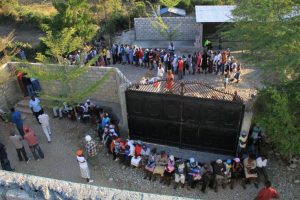
Outside the clinic.
Written by Dr. Joe Markee, one of the team leaders for the November medical team working in Haiti:
As we start our last day, we are facing a situation we’ve never encountered. Over the past several days, we have been seeing sicker patients, with a sudden increase in the number of cases of cholera. Since many patients are coming from Port-au-Prince, this may represent the patients’ impetus to seek care wherever they can find it. But it does not change the conclusion the that cholera epidemic has destroyed the fragile network that we use for transferring patients needing hospitalization for further medical care.
Our pediatrician commented last night that he is not used to the pace of caring for so many extremely ill patients (he is also an ER doctor). Case in point: We have a 1-year-old patient who probably has an intestinal obstruction. We first saw him two days ago, and we wanted to send him to Dessalines but could not do so because of the danger of sending our vehicles out at night. Yesterday, when he did arrive at their hospital, we were told they could not keep him because they had no surgeon. Calls to find a surgeon were made but without success so he spent a second night with us. Today, we will try Gros Morne again, and we’re praying that he will be able to be seen by a surgical team coming in on Saturday to work near Port-au-Prince.
Our nurses say this is the worst they have ever seen in this area; so many sick patients. The observation room is filled, patients are lying on the floor in the clinic in almost all of the rooms, and several very sick cholera patients are on IVs in the church across the street. We are running through so many IV solutions that we expect to be completely out sometime today. Yesterday we requested more fluids from Gonaives but won’t know until noon if they are available. So rounds now consists of seeing patients in three locations, making sure IVs don’t run out.
If that wasn’t enough, yesterday we had two trauma cases, one being one of the leaders of our community health program. Fortunately, neither had major life-threatening injuries. Nevertheless, they were sent to hospital facilities, and seen here again today.
Fear is rampant in the country. Our partners in Haiti have had to scour the countryside for rice and beans for our patients because of the hoarding by the population.
But we are healthy, tired and still going … We do not think the cholera epidemic is about to go way any time soon. I have no doubt that we will be dealing with this disaster on future teams.
Pray for the people of Haiti.
Papa Joe











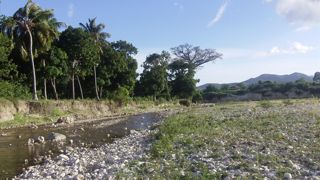 The June medical team has arrived safely in Haiti. Our travels went smoothly and we arrived at the Clinic of Hope on Friday evening in time for a delicious Haitian meal. Saturday was spent setting up the clinic and settling into our home for the next week.
The June medical team has arrived safely in Haiti. Our travels went smoothly and we arrived at the Clinic of Hope on Friday evening in time for a delicious Haitian meal. Saturday was spent setting up the clinic and settling into our home for the next week. As we drove along the outskirts of Port-au-Prince I didn’t see widespread areas of collapsed buildings. What I did notice was the usual hustle and bustle of life on the streets but with a changed backdrop of broken homes and buildings. Homes that appeared intact have tents or tarps outside where people are living – people are afraid to sleep in their homes or spend any time inside buildings. We passed several vacant lots full of tents or tarps and outside the city we saw a hillside filled with shelters built of blue tarps and plastic hung on stick frames. As the rainy season approaches these temporary shelters are inadequate and present health issues…
As we drove along the outskirts of Port-au-Prince I didn’t see widespread areas of collapsed buildings. What I did notice was the usual hustle and bustle of life on the streets but with a changed backdrop of broken homes and buildings. Homes that appeared intact have tents or tarps outside where people are living – people are afraid to sleep in their homes or spend any time inside buildings. We passed several vacant lots full of tents or tarps and outside the city we saw a hillside filled with shelters built of blue tarps and plastic hung on stick frames. As the rainy season approaches these temporary shelters are inadequate and present health issues… We arrived in Terre Blanche after dark and were warmly welcomed with singing and a prayer of thanksgiving by some of our Haitian co-workers. Our medical team had been scheduled for over a year and we worked alongside the Haitian clinic staff to meet the needs of people coming through the clinic. The earthquake was heard and felt throughout the country of Haiti but in our area there was no loss of life and the buildings are intact although some have cracks now. Like in PAP, people live with fear about future earthquakes. This area has not had a harvest for two years due to the devastating hurricanes of 2008 and then droughts that dried up later crops. The riverbed has only a trickle of water, barely enough to wash clothes. Many households have doubled in size as displaced people have moved out of the earthquake-affected areas. In a community that is already feeling the lack of food and water, more people have caused additional strain. Because of the generosity of churches and individuals, we were able to give beans and rice to every patient coming through the clinic – that was over 1,100 people.
We arrived in Terre Blanche after dark and were warmly welcomed with singing and a prayer of thanksgiving by some of our Haitian co-workers. Our medical team had been scheduled for over a year and we worked alongside the Haitian clinic staff to meet the needs of people coming through the clinic. The earthquake was heard and felt throughout the country of Haiti but in our area there was no loss of life and the buildings are intact although some have cracks now. Like in PAP, people live with fear about future earthquakes. This area has not had a harvest for two years due to the devastating hurricanes of 2008 and then droughts that dried up later crops. The riverbed has only a trickle of water, barely enough to wash clothes. Many households have doubled in size as displaced people have moved out of the earthquake-affected areas. In a community that is already feeling the lack of food and water, more people have caused additional strain. Because of the generosity of churches and individuals, we were able to give beans and rice to every patient coming through the clinic – that was over 1,100 people.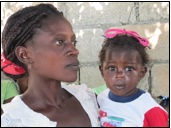 Clinic of Hope stories: Healthy newborn baby boy; severe leg injury from a motorcycle accident; advanced cancer diagnosis given to several different patients; beans and rice given to every patient; waking in the morning to hymns of praise being sung by those in the clinic waiting area; young woman suffering depression after her five year old son and 21-year-old sister died in the earthquake; people receiving prayer as well as medicine; smiles of children as they receive lollipops at the doctor tables; happiness that we were able to see every waiting patient each day; patients spending the night in the observation room; minor surgeries done; malnourished children receiving high nutrition peanut butter supplement on the Medika Mamba program; and the list goes on.
Clinic of Hope stories: Healthy newborn baby boy; severe leg injury from a motorcycle accident; advanced cancer diagnosis given to several different patients; beans and rice given to every patient; waking in the morning to hymns of praise being sung by those in the clinic waiting area; young woman suffering depression after her five year old son and 21-year-old sister died in the earthquake; people receiving prayer as well as medicine; smiles of children as they receive lollipops at the doctor tables; happiness that we were able to see every waiting patient each day; patients spending the night in the observation room; minor surgeries done; malnourished children receiving high nutrition peanut butter supplement on the Medika Mamba program; and the list goes on. Terre Blanche School: There are 850 students registered at the Terre Blanche school in grades pre-K through 9th grade. It was wonderful to see how much these students value their education and love and respect their teachers. Students receive a meal each day, a generous serving of rice and beans with a sauce. There were four educators on our team and we were able to spend time in the primary and secondary classrooms. We met each of the teachers, talked with students and then had the joy of going into the 9th grade English class to have English conversations with small groups of students. Students start learning French in pre-K with English and Spanish added in the secondary school.
Terre Blanche School: There are 850 students registered at the Terre Blanche school in grades pre-K through 9th grade. It was wonderful to see how much these students value their education and love and respect their teachers. Students receive a meal each day, a generous serving of rice and beans with a sauce. There were four educators on our team and we were able to spend time in the primary and secondary classrooms. We met each of the teachers, talked with students and then had the joy of going into the 9th grade English class to have English conversations with small groups of students. Students start learning French in pre-K with English and Spanish added in the secondary school.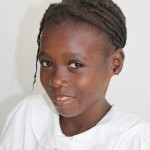 The March medical team has returned home after a week of treating patients at the Clinic of Hope and distributing rice and beans to everyone who came through the door. Thank you to everyone who supported the team.
The March medical team has returned home after a week of treating patients at the Clinic of Hope and distributing rice and beans to everyone who came through the door. Thank you to everyone who supported the team.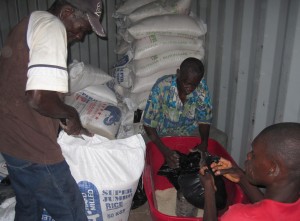 One of our Haitian partners working with the visiting medical team at the Clinic of Hope asked today for prayers for his country. He asked for people to pray for the leadership in Haiti.
One of our Haitian partners working with the visiting medical team at the Clinic of Hope asked today for prayers for his country. He asked for people to pray for the leadership in Haiti.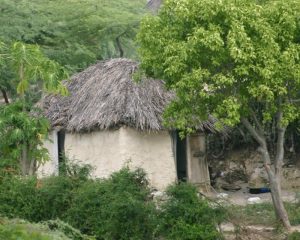
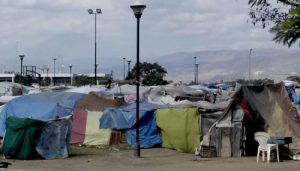

 Instagram Feed
Instagram Feed

